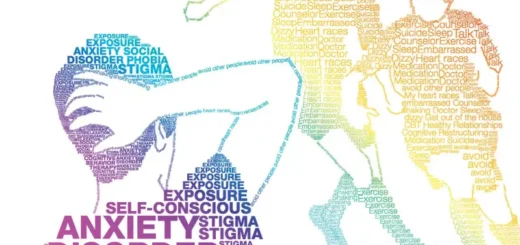Cultural Factors Shaping Social Phobia in New Zealand
Social phobia, characterized by intense fear and avoidance of social situations, is a significant mental health issue affecting many individuals in New Zealand. The unique cultural landscape of New Zealand, with its blend of indigenous Māori practices and European influences, creates distinct challenges for those grappling with social phobia. Understanding how cultural factors shape experiences of social anxiety is crucial for developing effective support systems tailored to the needs of diverse communities within the country.
In New Zealand, access to resources and support for individuals facing social phobia is vital. Organizations like the New Zealand Association of Psychotherapists provide essential information and services that cater to the cultural nuances of social phobia. For more resources on tackling social phobia, visit this link, which offers valuable insights and assistance for those affected by this condition.
Cultural Understanding of Social Phobia in New Zealand
The perception of social phobia, or social anxiety disorder, is significantly influenced by cultural factors. In New Zealand, societal attitudes towards mental health can shape how individuals recognize and respond to their own experiences of social phobia. Kiwis are known for their ‘she’ll be right’ attitude, which can sometimes minimize the seriousness of mental health issues, leading to a reluctance to seek help. This cultural backdrop can make it difficult for individuals suffering from social phobia to openly discuss their feelings and seek the support they need.
Understanding social phobia in the New Zealand context involves recognizing the unique challenges presented by the local culture. For instance, Maori perspectives on mental health often emphasize holistic well-being and community support. This can lead to different expressions of social phobia and varying coping strategies that may not align with mainstream medical approaches. Engaging with local support systems, such as those offered by Social Phobia New Zealand, can provide tailored resources that respect and incorporate cultural nuances.
The Role of Community and Connection
Community plays a crucial role in addressing social phobia in New Zealand. The sense of belonging fostered by local communities can either alleviate or exacerbate feelings of anxiety. In smaller towns or rural areas, the close-knit nature of the community might lead to increased scrutiny, making individuals with social phobia feel more exposed. Conversely, in urban areas, the anonymity might provide a sense of freedom but can also lead to feelings of isolation.
Support systems that focus on community engagement can be particularly effective. For example, community centers can host social skills workshops that help individuals practice interactions in a safe environment. These gatherings can also serve as platforms for sharing experiences and coping strategies, helping to normalize the discussion around social phobia. Utilizing resources available through Social Phobia New Zealand can aid individuals in finding such community programs that resonate with their cultural backgrounds and personal needs.
Access to Mental Health Services
Access to mental health services is a significant factor that affects the management of social phobia in New Zealand. While there are various services available, geographical disparities can hinder access for those living in rural areas. Moreover, cultural stigmas surrounding mental health can deter individuals from seeking assistance.
In New Zealand, there are initiatives aimed at improving access to mental health services, particularly for marginalized communities. The integration of cultural competency in therapy can make a significant difference. For instance, therapists trained in Maori cultural practices can provide a more relatable approach for Maori individuals struggling with social phobia. To better understand available resources and support systems, individuals can explore Social Phobia New Zealand, which offers guidance on how to navigate mental health services effectively.
Educational Institutions and Social Phobia
Educational institutions in New Zealand play a pivotal role in shaping the experiences of young individuals dealing with social phobia. Schools can be a source of significant stress, as students often face social pressures that can trigger anxiety. The challenge is compounded by the competitive nature of academic environments, which can exacerbate feelings of inadequacy and isolation among those with social phobia.
Implementing programs that promote mental health awareness and emotional intelligence in schools can help mitigate these issues. Schools can collaborate with organizations like Social Phobia New Zealand to provide training for teachers on recognizing and supporting students who may be struggling with social anxiety. Creating a supportive and understanding school environment is essential for students to feel safe enough to seek help.
Social Media and Its Impact
The rise of social media has transformed the way individuals interact, which can have both positive and negative implications for those with social phobia in New Zealand. On one hand, social media can provide a platform for individuals to connect with others who share similar experiences, thus reducing feelings of isolation. Online support groups and forums can be valuable resources for sharing coping mechanisms and providing emotional support.
However, social media can also exacerbate social anxiety by fostering unrealistic comparisons and promoting a culture of perfectionism. It’s essential for individuals to navigate these platforms mindfully. Resources such as Social Phobia New Zealand can offer guidance on how to use social media positively and identify harmful patterns that may trigger social phobia symptoms.
Workplace Challenges and Solutions
The workplace can be an intimidating environment for individuals with social phobia, particularly in a culture that often emphasizes extroversion and social interaction. In New Zealand, the work environment can be quite social, with networking events and team activities that may provoke anxiety for those suffering from social phobia.
Employers can play a crucial role in creating supportive environments by implementing flexible workplace policies that accommodate employees with social anxiety. This might include options for remote work or providing quiet spaces for employees who need a break from social interactions. Training sessions on mental health awareness can help foster a culture of understanding and acceptance. For more information on workplace support and resources, individuals can visit Social Phobia New Zealand.
The Path Forward: Building Resilience and Support Systems
Building resilience and effective support systems is essential for individuals with social phobia in New Zealand. This involves a multi-faceted approach that includes personal, community, and institutional strategies. Encouraging open discussions about mental health can help reduce stigma and promote understanding.
Individuals can benefit from self-help strategies such as mindfulness practices, cognitive-behavioral techniques, and engaging in physical activities that promote well-being. Community programs that focus on social skills development can also be invaluable. Resources like Social Phobia New Zealand provide important information and support for individuals seeking to navigate their social phobia. By fostering a culture of understanding and support, New Zealand can better address the unique challenges faced by those living with social phobia.
FAQs
What is social phobia and how does it manifest in New Zealand?
Social phobia, also known as social anxiety disorder, is characterized by an intense fear of social situations where one may be judged or scrutinized by others. In New Zealand, this can manifest in various ways, including avoidance of social gatherings, fear of public speaking, and excessive worry about being embarrassed in everyday interactions.
How do cultural factors influence social phobia in New Zealand?
Cultural factors play a significant role in shaping attitudes towards social interactions and mental health. In New Zealand, the diverse cultural landscape, including Māori, Pacific Islander, and immigrant communities, can influence how individuals experience and express social phobia, affecting their willingness to seek help and the types of support they prefer.
What unique challenges do New Zealanders face regarding social phobia?
New Zealanders may face unique challenges such as societal stigma surrounding mental health issues, cultural expectations around social behavior, and limited access to culturally appropriate mental health services. These factors can exacerbate feelings of isolation and hinder recovery for those dealing with social phobia.
What support systems are available for individuals with social phobia in New Zealand?
Support systems in New Zealand include community mental health services, counseling, support groups, and online resources. Organizations like the Mental Health Foundation of New Zealand provide information and support tailored to the needs of those experiencing social phobia, taking into account cultural sensitivities and community connections.
How can family and friends help someone with social phobia?
Family and friends can play a crucial role in supporting someone with social phobia by fostering a non-judgmental environment, encouraging open communication, and helping them gradually face their fears. It’s important for loved ones to educate themselves about social phobia to provide empathetic support and understanding.
Are there specific therapies effective for treating social phobia in New Zealand?
Yes, several therapeutic approaches have proven effective for treating social phobia, including cognitive-behavioral therapy (CBT), exposure therapy, and mindfulness techniques. In New Zealand, therapists often incorporate culturally relevant practices to ensure that treatment resonates with the individual’s background and experiences.
What role does community play in managing social phobia?
Community plays a vital role in managing social phobia by providing a sense of belonging and reducing feelings of isolation. Engaging in community activities, support groups, and cultural events can help individuals build confidence and develop social skills in a supportive environment, ultimately aiding in their recovery journey.
References
- Understanding Social Phobia in New Zealand – This website offers comprehensive information about social phobia, including local resources and support systems specific to New Zealand.
- The Impact of Culture on Mental Health in Aotearoa New Zealand – This article discusses how cultural factors influence mental health issues, including social phobia, within New Zealand’s diverse communities.
- Tackling Social Anxiety Disorder in New Zealand – A government report that outlines the challenges and strategies for addressing social anxiety disorder, focusing on cultural considerations in the New Zealand context.
- Understanding Social Anxiety: A New Zealand Perspective – This resource from the New Zealand College of Clinical Psychologists provides insights into social anxiety, examining cultural influences and therapeutic approaches.
- Cultural Factors in Mental Health: A New Zealand Perspective – A radio segment discussing how cultural backgrounds affect mental health, with a focus on social anxiety and the unique challenges faced in New Zealand.




